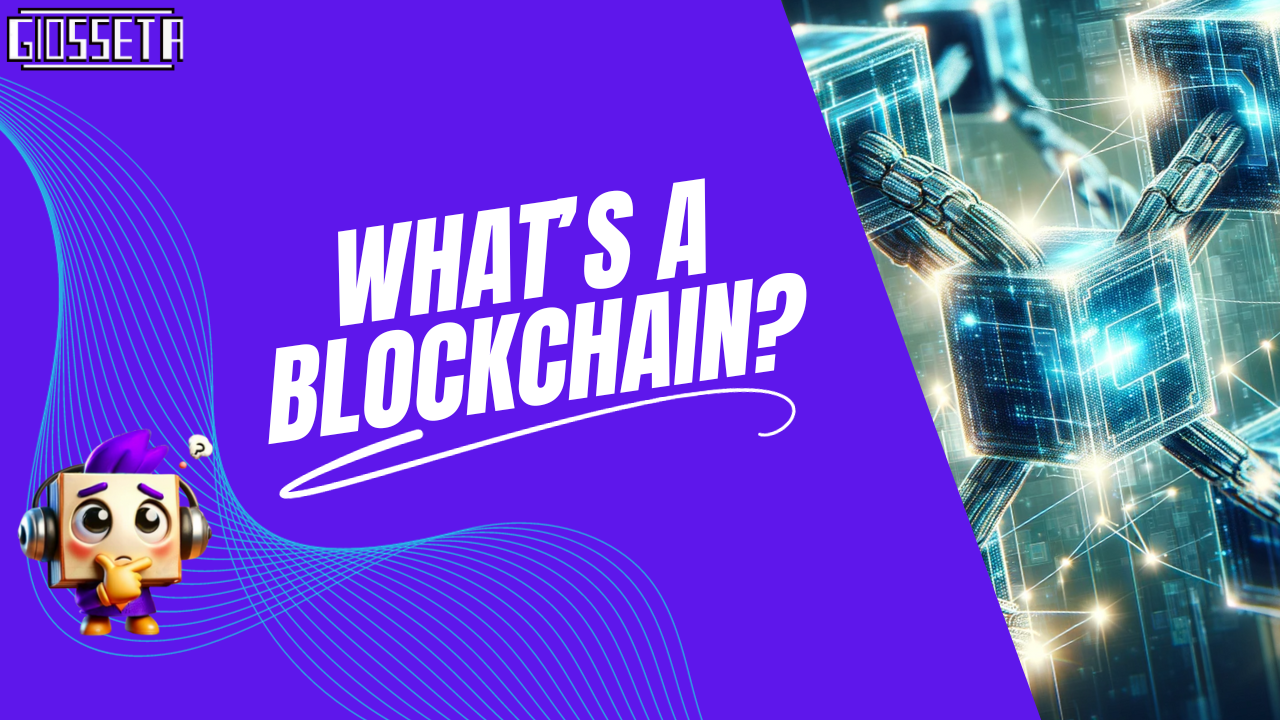What is a Blockchain?
 Glosseta Foundation
Glosseta Foundation
The term 'blockchain' often brings to mind complex technology, price speculation and cryptocurrencies; however, its relevance extends much further. This blog series aims to demystify blockchains, NFTs, cryptocurrency and related technologies using simple, real-world examples, making it approachable for everyone.
What is Blockchain Technology?
The Book Club Analogy
Imagine a book club, where instead of one person keeping track of all the books read, each member maintains their own list. Whenever someone finishes a book, they announce it, and everyone updates their list. Blockchain operates similarly. It's a digital ledger where every transaction is recorded not in one place, but across a network of computers. Each 'block' in the chain contains transaction data, and as new transactions occur, they're recorded on every participant's ledger.
Key Features Explained
Decentralization: Blockchain isn't stored in one location or controlled by a single entity. It's spread across a network, offering enhanced security and independence. For our book club example, each person keeping a list of the books that were read versus just one person keeping the list, promotes decentralization.
Transparency: Transactions on the blockchain are visible to all participants, promoting openness. For our book club, the fact that the completion of reading a book is announced to everyone ensures the clubs progress is transparent.
Security: Changing recorded information is extremely difficult, as each block is linked to the previous one, creating a secure chain. Coming back to our book club, the fact that everyone keeps the same list of books and that progress is announced to everyone, it becomes hard to trick the club into thinking you've read a book.
What Does Blockchain Enable?
Beyond Digital Currencies
Cryptocurrency is the most mainstream technology you've likely heard about and it's one of the major innovations that blockchains have enabled; however, Blockchain applications are more diverse then just cryptocurrencies:
Smart Contracts: These are like automatic agreements. For instance, in a rental agreement, once the deposit is paid, a smart contract could automatically provide the digital keys to the property.
Supply Chain Management: Imagine tracking your online order in detail. Blockchain can track products from production to delivery, ensuring authenticity and reducing fraud.
Voting Systems: Blockchain can create secure, transparent voting systems, minimizing fraud.
Identity Verification: It provides a secure and unforgeable way of managing digital identities.
Why Should You Care About Blockchain?
Real-World Impact
Trust and Security: Blockchain ensures that the digital information or assets you deal with are secure and authentic.
Efficiency: It can streamline processes, making them faster and less expensive.
Innovation: Blockchain is enabling new business models and services, impacting various industries.
Looking Forward
Blockchain technology is evolving, with its full potential still unfolding. Understanding it is crucial for navigating the digital landscape of the future.
Resources
See a term you didn't understand? Use the Glosseta Web3 Glossary to help you on your learning journey to demystify the concepts and terms you encounter
Have ChatGPT Premium? Try the Glosseta Web3 AI assistant to help you with any inquiries
Subscribe to my newsletter
Read articles from Glosseta Foundation directly inside your inbox. Subscribe to the newsletter, and don't miss out.
Written by
